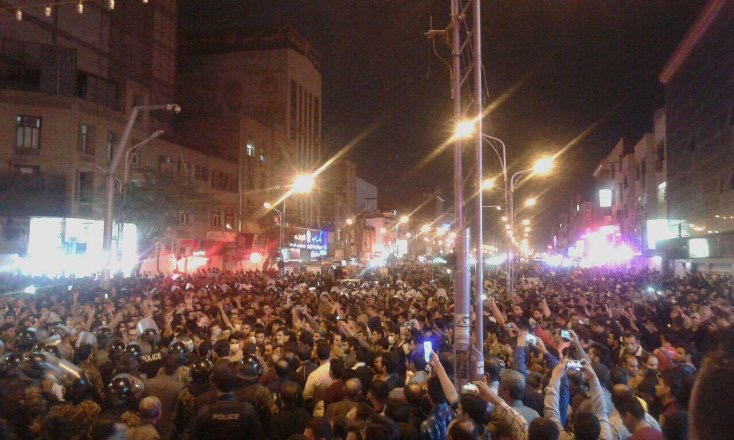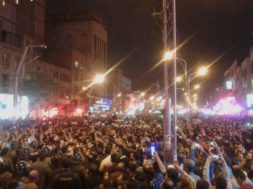
The one we are observing in Iran is not yet a revolt and least of all it is a revolution. After forty years of dictatorship, the power of the Iranian theocracy is strong, and the Security paramilitary Forces Basiji (and even more the Guards of the Revolution) are ready to avoid that the status could be altered. But forty years are too many to forget corruption and the conditions which brought to power the Ayatollah, and, in a connected world, those years are too many even to stop the desire of freedom (of clothing, of walking by the streets hand in hand, of kissing our loved one without fear) of two generations who lived in the terror of the repression. The protests begun, as it usually happens, because of concrete motivations, like the price of essential goods or the corruption, which tens of thousands of citizens paid the price for personally. But if it is true that the concrete elements moved the first flicker of the revolt, the ideal and deep motivations transformed it into an insurrection, while the masses potentially could make it a real revolution. The Iran protest, at the moment, finds itself between the revolt and the insurrection; the political and ideal motivations took the place of the concrete requests connected to economical life and temporary wellness, but why the masses’ contribution misses? Because the Iranian repressive apparatus is powerful, because millions of Iranian are supporters of the Theocratic State for profit or faith and because in 2009, when the last real protest in the land of Persia rose, no one desired to support (we’re talking about international location) the requests of the opponents, who were incarcerated, killed, and excluded from society. Who has the courage, today, to follow the same path, without hoping on outer help? It is difficult to say if today that help to the opponents will come, but for sure United States immediately supported the protest against Ayatollah, without precedents of similar decisions since Reagan. It is legit to think that, in case the insurrection spread, the United States could help openly and concretely the rioters. Why? Because today Iranian military expansion put on risk Americans, Saudis and Israelis businesses and for sure it is more advantageous a change of the regime than a classic Gulf war, both in human life costs terms and banally in budget terms, not including the political inner risk for a president that is struggling taking the power. Eliminating the main characters of the Iranian state could help concretely the Americans leading to a new Iranian revolution, if and when it deflagrated. The methods used in other places of Middle-East (Syria, Libya, Egypt) are not functional to the Iranian scenario, besides being already misleading where they were employed. Also because of this, it is an error to compare the square uprisings of the Iranian opposition to the Arab Spring. In every “spring”, the religious and anti-secularist motivation was a pillar of the revolt; here instead we are watching the opposite phenomenon, where the opponents protest to try to tear down a system of political-religious power that already controls a whole country. The attention of the Iranian government is the biggest in order that the revolt does not become an insurrection. The Security Forces have, until now, avoided to employ weapons, to not provide martyrs to the square. No one today is able to know what will happen in the land of Persia, but of one thing we are sure: it won’t be an Arab Spring and no one of the foreign actors which could intervene in the future will realize the Obamian motto of “Leading from Behind”. Dictatorships govern with the iron fist, they have power to give life and death, but cyclically (if they don’t evolve in another government form) they are destined to implode in chaos and blood. Iran today is a country that can evolve in the direction of a form of not theocratic government or of imploding because of the crowds. We will be here, hoping not to see the blood of Iranian people flow, to tell you what will happen.








